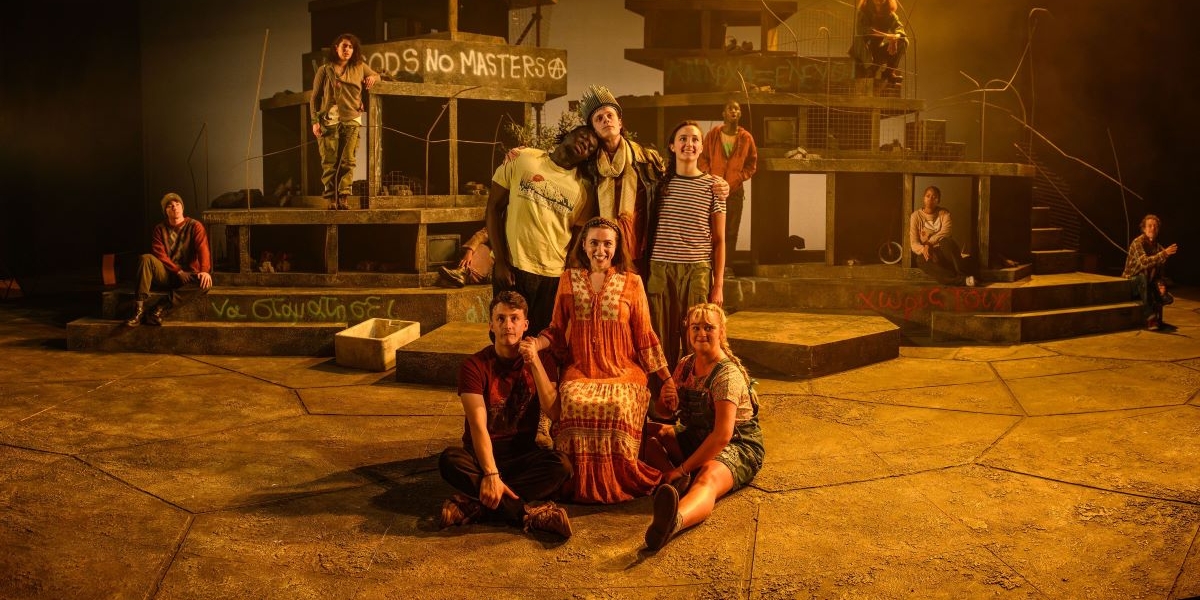This new adaptation by Stef Smith of the Greek classic has a lot going for it but also some significant drawbacks. It is a great idea to commission a modern writer to produce a new performing version for students rather than inviting them simply to revive the accepted text; and the students respond with intense engagement to the edgy dystopian setting provided, which takes the drama of Oedipus and his children out of canonical remoteness and out onto the concrete-bounded streets, damp bedsits, and unsafe areas of gang-dominated estates. Smith also does something long overdue in rewriting the part of the passive sister Ismene, often seen as just a foil to Antigone. This a very welcome rebalancing that also helps to make the play a whole more relatable for the majority of us who seek scope for compromise rather than eagerly embracing martyrdom for principles. But the very act of filling out the play has its negative aspects too. One of the greatest strengths of Sophocles’ original is its economy, and this is compromised to an extent by the heavy-handed rendering of contemporary parallels in the final sections and a long introductory prologue that tells the story of the House of Cadmus in a way that does not seem fully justified or necessary.
That said, the actors engage with the material with great drive and lively energy in no way blunted by the fire alarm that interrupted the opening night. Designer Amanda Stoodley has set the action in a multi-level twisted mass of concrete and metal with an open forestage for more freedom of action. Every named character doubles as a citizen in the chorus, whose collective role is always fundamental to the success and meaning of Greek tragedy. Movement director Diane Alison-Mitchell does good work with the chorus in using flexible energies in the dynamics to represent and mirror the ebb and flow of moods and opinions within the play.
Among the leads Amber Gadd and Willy Ramnek Petri, as Jocasta and Oedipus, give us both a plausible vision of happily married and parental life while registering with graphic intensity the destructive consequences of the revelation of their double identities. All four of the actors playing their children are surprisingly good at playing themselves as young children with striking anticipations of their adult rivalries and tensions. It is good to see the conflict between Polyneices and Eteocles acted our rather than reported, and Joseph Clark and Prince Owusu provide credibly contrasted cameos of boys playing with power before they have reached adulthood. Nora Knop’s Antigone is warmer than many manage in this austere role, but with all the fierce logic needed to defy the dictates of the state. She is very well paired with Obadiah as Haemon, another role that often seems underwritten, but which here is delivered with powerfully personal passion. Sachin Krishan Sharma captures Creon’s blinkered, black-and-white approach to governance very convincingly, but it is a pity the play does not make more of his debates with Arinder Sadhra’s Tiresius.
The standout performances come from Lola Shalam and Francesca Gilbert as Ismene and Creon’s wife Eurydice, both roles which can and often do slide past unnoticed, but which here are foregrounded by the writer. The strong feminist emphasis of the writing is well projected as well as the perspective of those who do not seek heroic outcomes but still rise to the demands of circumstance.
Overall this is a thought-provoking, sometimes confronting production, which provides a convincing framework for a collective student experience with many opportunities for foregrounding individual talent.

